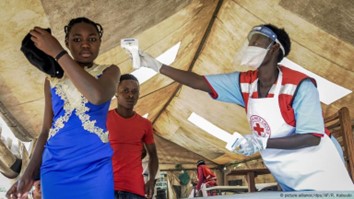Sierra Leone’s Ministry of Health and the National Public Health Agency (NPHA) heightened surveillance and preparedness measures following the confirmation of an Ebola Virus Disease (EVD) outbreak in Uganda.
The outbreak, caused by the Sudan strain of the virus, was confirmed by Uganda’s Ministry of Health on January 30, 2025, with one reported case and one death in Wakiso, Mukono, and Mbale City in Mbale District. Ugandan health authorities are currently tracking 44 contacts to curb further spread.
EVD, a rare but severe illness caused by viruses of the genus Ebolavirus, was first identified in 1976 near the Ebola River in what is now the Democratic Republic of the Congo. Since then, the disease has caused multiple outbreaks across Africa, with devastating consequences.
Sierra Leone is no stranger to the horrors of Ebola. The country was one of the hardest hit during the 2014-2016 West African Ebola epidemic, which claimed over 11,000 lives across Guinea, Liberia, and Sierra Leone.
Sierra Leone alone recorded nearly 4,000 deaths, with over 14,000 confirmed cases. The outbreak overwhelmed the country’s healthcare system, disrupted economies, and left lasting scars on communities.
The 2014 outbreak highlighted critical gaps in Sierra Leone’s healthcare infrastructure and emergency response capabilities. Since then, the country has made significant strides in strengthening its public health systems, including the establishment of the National Public Health Agency (NPHA) to better prepare for and respond to disease outbreaks.
The recent outbreak in Uganda is raising concerns across Africa, particularly in countries like Sierra Leone that have experienced the devastating impact of Ebola.
Ebola spreads to humans through close contact with the blood, secretions, organs, or other bodily fluids of infected animals such as fruit bats, chimpanzees, gorillas, monkeys, forest antelope, and porcupines. Human-to-human transmission occurs via direct contact with the bodily fluids of infected individuals, contaminated surfaces, or materials like bedding and clothing.
Healthcare workers and family members are particularly at risk when caring for infected patients without proper protective measures. Ebola is often fatal, with case fatality rates varying from 25% to 90% in past outbreaks, depending on factors such as the virus strain and the effectiveness of response efforts. The average case fatality rate is around 50%.

